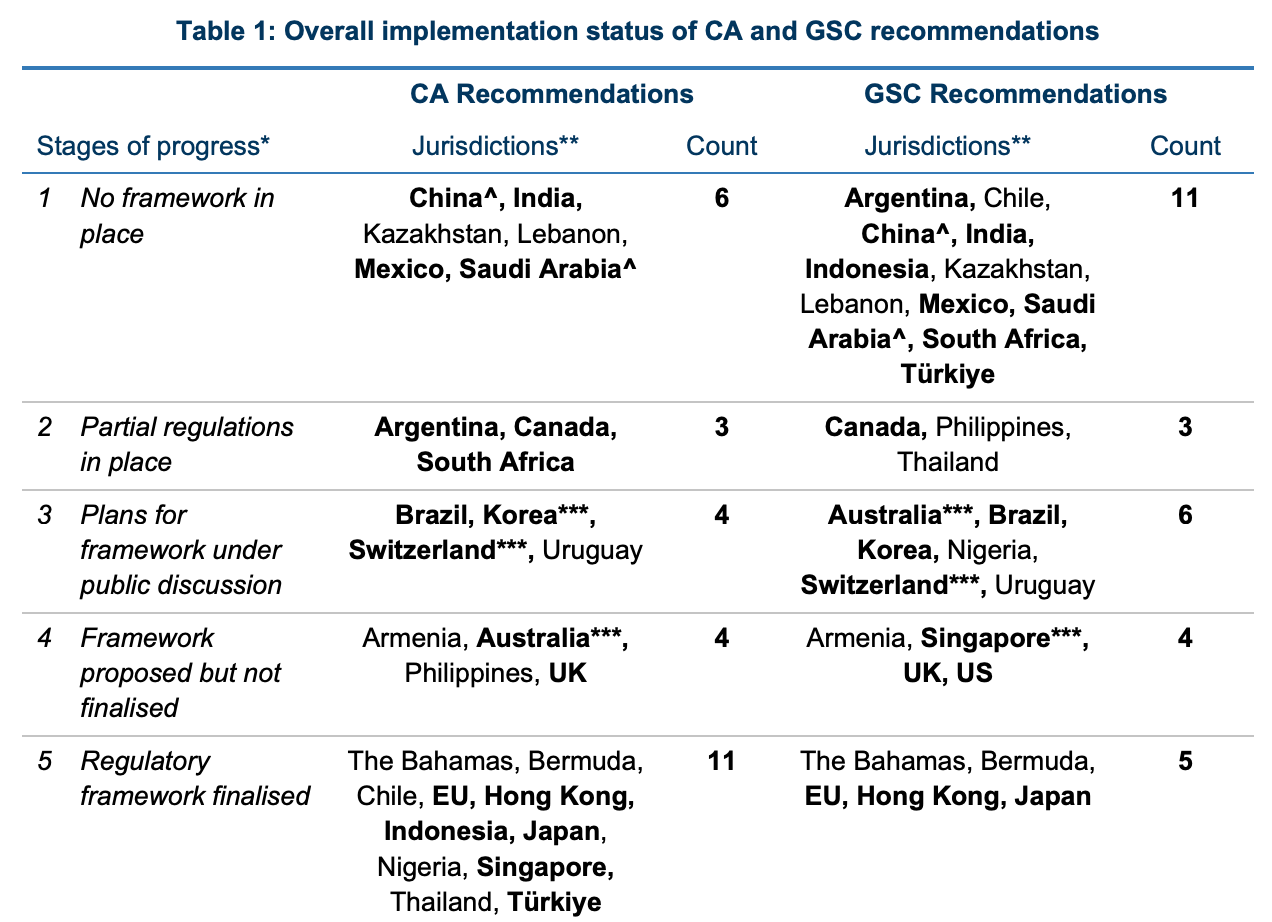
Challenges Arise in Global Crypto Regulation Due to Privacy Laws, Says G20 Watchdog
The G20's Financial Stability Board highlights privacy laws as significant barriers to cross-border cooperation in cryptocurrency regulation.
Sixteen years after the launch of Bitcoin, regulators are still grappling with hurdles in acquiring reliable cryptocurrency data due to privacy legislation complicating their efforts.
The Financial Stability Board (FSB), an international financial authority funded by the Bank for International Settlements (BIS), has pointed out ongoing gaps in how nations regulate the cryptocurrency industry. The FSB noted:
“This inconsistency creates challenges such as regulatory arbitrage, data gaps, and market fragmentation.”
In a comprehensive 107-page peer review report made public on Thursday, the FSB highlighted significant issues in cross-border cooperation, focusing on the fragmented supervisory responsibilities that exist across different government bodies and the diverging practices in different nations, especially concerning privacy laws.
FSB Highlights Need to Address Privacy Barriers
The challenge of data confidentiality poses a crucial obstacle in recognizing systemic risks and managing cross-border cryptocurrency operations, according to the FSB. They stated:
“Secrecy or data privacy laws may pose significant barriers to cooperation,” citing instances where some regions restrict local firms from sharing data with authorities in other areas.
Moreover, there is reluctance among certain stakeholders to disclose sensitive information, stemming from fears of confidentiality breaches or lack of assurance of reciprocal protection.
 Implementation status of FSB’s policy recommendations in crypto regulation. Source: FSB
Implementation status of FSB’s policy recommendations in crypto regulation. Source: FSB
The FSB further mentioned that these apprehensions lead to delays in responding to cooperation requests and can discourage participation in collaborative frameworks altogether. They added:
“Addressing these challenges is likely to foster more effective and efficient cross-border cooperation in the rapidly evolving crypto-asset landscape.”
The FSB has identified data privacy as a major blind spot for implementing effective global regulatory frameworks, which raises the question of what solutions may emerge.
Data Providers Face Issues with Accuracy and Consistency
While the FSB emphasizes data privacy issues as pivotal in tackling financial stability threats, the cryptocurrency sector has consistently advocated for its protection as a fundamental right. Despite not rendering crypto transactions entirely anonymous, the FSB warns that data providers in the crypto space often struggle with accuracy, consistency, and comprehensiveness.
“Regulatory data sources remain limited, prompting authorities to depend heavily on commercial data providers, surveys, and other incomplete or fragmented data sources.”
Even though the FSB identified similar challenges with data provision almost four years ago, progress towards enhancing the quality of cryptocurrency data seems minimal.
Cointelegraph reached out to the FSB for comment on potential strategies to overcome these data-related hurdles but did not receive a response prior to publication.


